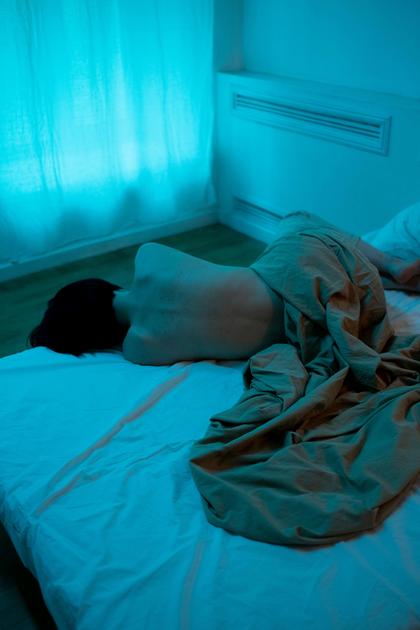Many women over 30 face the silent struggle of hair loss, often linked to hormonal imbalances during menopause. This experience can be overwhelming, stirring feelings of frustration and confusion. You might wonder why this is happening to you and if there’s a way to remedy it. Insight into the truth behind hair loss during this transition will not only help you understand your body better but can also illuminate paths to regain control over your hair and overall well-being.
As we delve deeper into this topic, it’s essential to recognize that you’re not alone in this journey. Many women are navigating similar challenges, trying to piece together the intricate puzzle of hormonal shifts and their impacts on hair health. See how many women are solving this without heavy medications.
The Calm Reset — 7 Days to Feel Steady, Kind & In Control Again - Only $2.99
Gentle guidance trusted by our community.
Understanding Hormonal Imbalance
Hormonal imbalance is a common issue, particularly during menopause, which can lead to various physical and emotional challenges. When hormones such as estrogen and progesterone fluctuate, it can disrupt the entire endocrine system. Women may experience symptoms like fatigue, mood swings, and, notably, hair loss. Understanding the impact of these hormonal changes is crucial in addressing the challenges they bring.
How Menopause Affects Your Hair
During menopause, the body undergoes significant hormonal shifts. The reduction in estrogen impacts hair growth cycles, causing hair to become thinner and more fragile. Women may notice increased hair shedding, or hair that doesn’t grow back as quickly. This change can be surprising and distressing, leaving many feeling less confident about their appearance.
Recognizing the Signs of Hair Loss
Identifying hair loss can be a gradual process. Indicators may include:
- Thinning Hair: Areas of noticeable thinning, especially around the crown.
- Excessive Shedding: More hair falling out during washing or brushing.
- Receding Hairline: A gradual retreat of the hairline, similar to male-pattern baldness.
- Shorter Hair Growth: Hair not growing back as quickly after a trim.
If you’re experiencing these signs, remember you’re not alone. Many women face similar situations, and there are ways to manage these changes.
Emotional Effects of Hair Loss
Hair is often seen as a key part of our identity and self-expression. Therefore, experiencing hair loss can lead to feelings of sadness, anxiety, or diminished self-esteem. It’s normal to grieve this change, and acknowledging these feelings is an important step. Connecting with others who share similar experiences can be incredibly empowering.
Nutritional Strategies for Healthier Hair
Nutrition plays a vital role in maintaining healthy hair. Incorporating certain foods can promote hair growth and strength:
- Protein-Rich Foods: Hair is primarily made of protein, so consuming eggs, fish, and legumes can be beneficial.
- Healthy Fats: Omega-3 fatty acids found in salmon, walnuts, and flaxseeds nourish the hair follicles.
- Vitamins and Minerals: Vitamins A, C, D, E, and iron are essential for hair health. Including leafy greens, nuts, and citrus fruits in your diet can help.
Consider evaluating your diet to ensure you’re giving your hair the nutrients it needs.
Natural Remedies and Solutions
Many women find relief and improvement through natural remedies. Some popular options include:
- Essential Oils: Oils like rosemary and peppermint can stimulate hair growth when massaged into the scalp.
- Herbal Supplements: Supplements like saw palmetto and ginseng may support hormonal balance.
- Scalp Massages: Regularly massaging the scalp can improve blood circulation and promote healthier hair growth.
Before starting any new regimen, it’s wise to consult with a healthcare provider to tailor a plan that fits your needs.
When to Seek Professional Help
If hair loss becomes significant or distressing, consider seeking the guidance of a healthcare professional or dermatologist. They can diagnose underlying conditions, suggest treatments, and provide support tailored to individual needs.
Empowering Yourself Through Change
Embracing change can be a powerful step. Many women find strength in discovering new styles, seeking supportive communities, or exploring therapeutic options. You are not defined by your hair, and it’s important to surround yourself with positive influences during these transitions.
Real Stories of Transformation
There are countless stories of women who have navigated similar hair loss experiences. Many have found empowerment in their journeys, discovering new ways to express themselves that go beyond their hair. Whether it’s through embracing a new hairstyle, finding a new passion, or connecting with others who understand, transformation is possible.
Steps to Regain Confidence
Rebuilding confidence is a journey, but there are practical steps you can take:
- Practice Self-Care: Engage in activities that make you feel good, whether it’s a skincare routine, makeup tutorials, or fashion.
- Connect with Others: Join support groups or online communities focused on hair loss; sharing experiences can be healing.
- Explore Hair Care Options: Consider wigs, extensions, or new hairstyles that you might feel enhance your look.
And remember, embracing who you are is the most beautiful journey of all. See how many women are resolving these challenges without heavy medication. With the right mindset and resources, you can cultivate confidence and resilience.
The Calm Reset — 7 Days to Feel Steady, Kind & In Control Again - Only $2.99
Gentle guidance trusted by our community.







